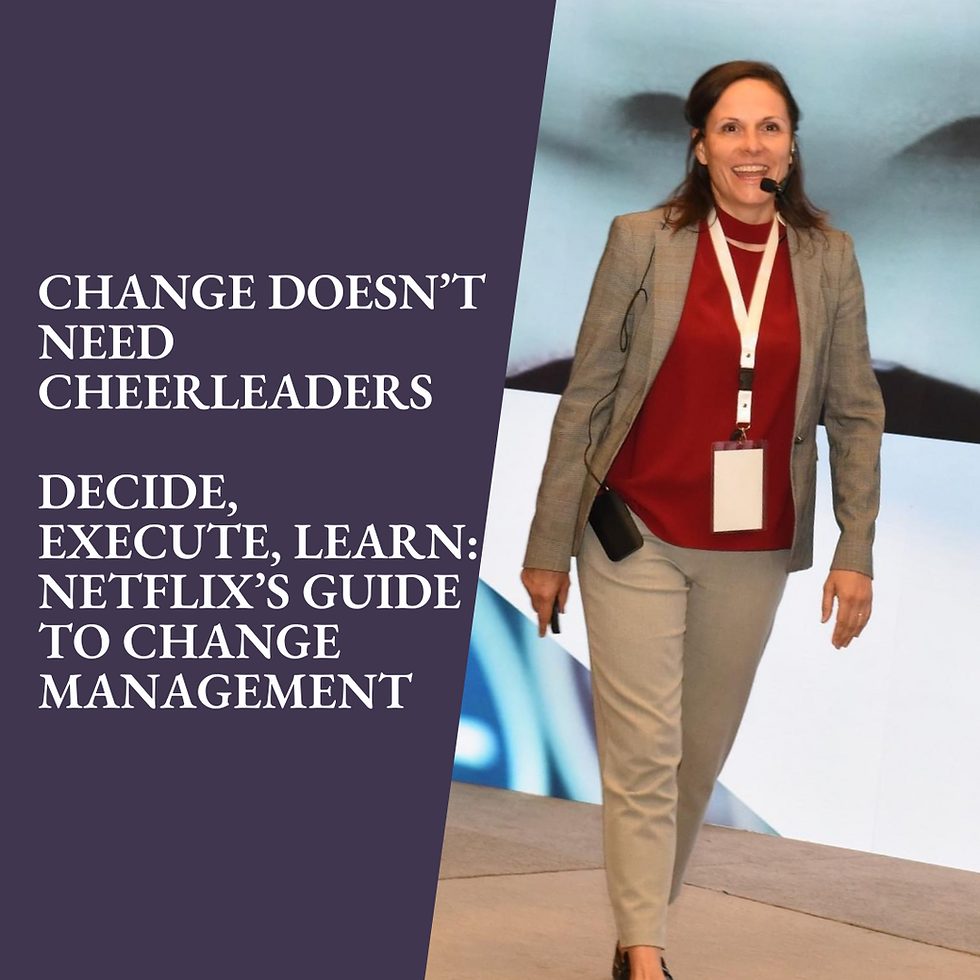The Authenticity Trap
- Szilvia Olah

- Sep 25, 2023
- 3 min read
Updated: Oct 12, 2024
They say be you. They even teach you about authenticity and authentic leadership, but they also expect you to sing the same song and jump on every bandwagon they are on because you are not a team player if you don't.
I like the weird ones that create controversy or have crazy ideas to which everyone goes, "What?" I like people who stand out and are different and tell me something of their own that I never heard, even if I disagree. Those who don't play it safe. I greatly respect people who don't blend in and go after the masses. The mass is boring, but for corporations, they are the ones with great potential and future.
Remember this: you cannot be authentic when you don't have your own opinion because you are busy travelling on social and corporate bandwagons, when "everyone" likes you because you are playing it safe.
Authenticity is polarising, and that is the #1 enemy of corporations.
Authenticity is not about vulnerability, as they like to sell this concept to everyone. It is not about showing our weaknesses and we all feel free to break down and cry.
Being authentic is being you. When you are authentic, you will attract people, but you will also push people away. Those you attract will love you, those you push away will hate you, and those you are fake with will like you.
This is a problem in corporations because they always want you to be likeable - whatever that means.
They make you get along with everyone or fit the mould, and If you don't, they send you for a training course as if something is wrong with you.
It's important to understand that authenticity doesn't mean getting along with everyone. Being true to ourselves means expressing our opinions and thoughts and taking actions that may not align with everyone's views. Some people will resonate with our thoughts and actions, while others may disagree or have different perspectives.
These alignments and misalignments help us find "our" people with whom we can work together, collaborate, be friends, and create amazing things. These differences and agreements help us sort through the wide variety of human beings and show us who we can join forces with and tackle life and work-related challenges. These alignments and misalignments are our innate social compass.
Yet, it seems that this social compass is being taken away by social narratives and corporate policies that are trumpeting that we all must get along. There is nothing wrong with people not getting along (having opposing views or doing things differently) as long as it does not impact work and the environment.
It requires maturity to productively navigate through the landscape of people we attract and push away. It is okay to feel and think, "I cannot stand that person", as long as we can be mature about it. This is what we should teach people. We should help them openly talk about these differences and understand that there is nothing wrong with them and that it is natural. We need to teach people what authenticity comes with and how to handle its pros and cons in the workplace.
These alignments and misalignments are also signs for leaders and managers to rearrange their teams to get the most out of them. And no, you don't need a team-building activity. What you need is understanding authenticity. Its side effects and how to handle it. It is not that your people need to go for training to correct their behaviour. It is that you, as a manager or leader, must understand what you are dealing with.
We ask for authenticity but when it shows up we send people to HR for a performance chat, reminding them about our values and behavioural competencies.
PS: Most of the time, people can sort out their differences we just need to let them do it. Once, I was listening to a 2h shouting match between two very senior executives, two alpha males were letting it out. A few months later, they became besties, and until today they work together. Based on their behaviour and the insults they said to one another, both should have been fired or at least given a final warning. But they are grown, mature adults (men) who sorted their differences the way men do. It was so natural. We don't need to make a fuss out of it. If it had continued and impacted work or others, an HR intervention would have been inevitable.
.png)




Comments